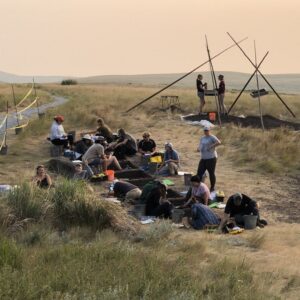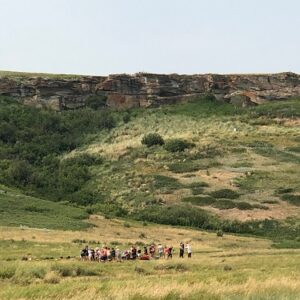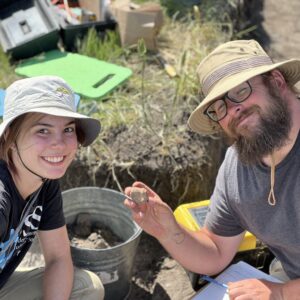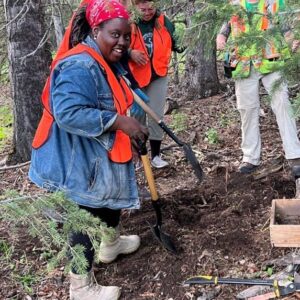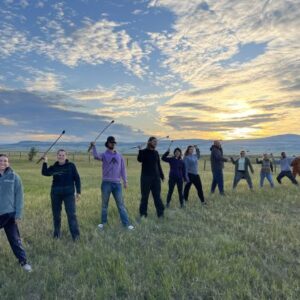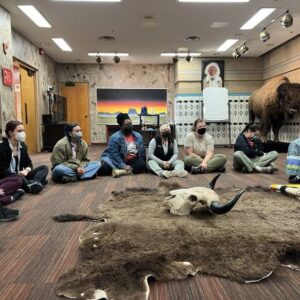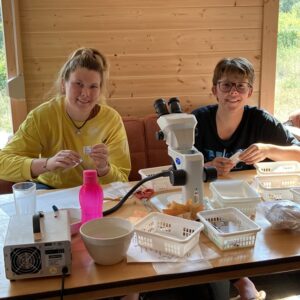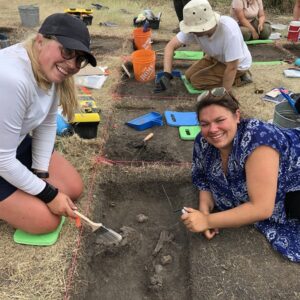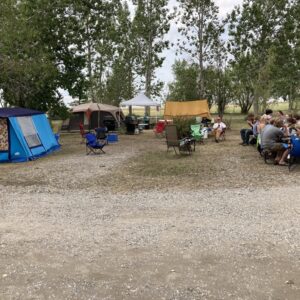2024 canada: head-smashed-in
Closed
May 19-Jun 23, 2024
Archaeology
Dr. Shawn Bubel, Dr. Kevin McGeough & Bob Dawe
$3,495
April 5, 2024
April 13, 2024 12:00pm Pacific Time
8 Semester credits
THIS PROGRAMS HAS AN APPLICATION DEADLINE
Application deadline is March 1, 2024. Please apply by this date to be considered for this field school.
Head-Smashed-In Buffalo Jump is a UNESCO World Heritage Site
Students are advised that this site is of a significant importance to our global heritage, Canadian heritage, and in particular – to the heritage of First Nations, primarily to the Blackfoot people. Attending students will be gain broad access to the site’s unique material culture. Students are expected to be mindful and respectful at all times of the site’s historical, ideological, political and economic complexities.
Program is full
OVERVIEW
Head-Smashed-In Buffalo Jump is located in the Porcupine Hills of southwestern Alberta, Canada. It is a UNESCO World Heritage Site and has an interpretive centre run by mostly Blackfoot staff that has hosted over two million visitors since 1987. The site is an elaborate complex spread across the landscape where, for at least the past 5,500 years, hunters used the natural landscape to drive herds of bison off cliff edges and then process the animals in the vicinity. It is one of the most important locations of Indigenous heritage.
Our work at Head-Smashed-In Buffalo Jump aims to clarify chronological and contextual issues related to the earliest occupation phases at the site, evaluate the relationships between different parts of the site, and identify earlier uses than those currently well-documented. Through this work, students will learn about the site and develop key skills necessary in North American archaeology. These elements of the project will involve targeted testing and excavations in three areas of the site and supplemental testing, surveying, and mapping in three other areas. During the field school students will have an opportunity to excavate at the site and process the archaeological materials they unearth in the laboratory.
Instructors
All field school directors are experts in their field and passionate about their work. To discuss the suitability of this program for your career goals – whether within or outside academia – you are invited to contact the directors directly. For a broader discussion which CFS program to choose, you are welcome to contact our staff directly – you can do that through our “Contact Us” page.
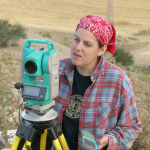

Prof. Shawn Bubel
University of Lethbridge
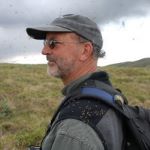



DR. Kevin McGeough
University of Lethbridge
Testimonials


From 2022 Student Evaluations
student fees (tuition)
what is covered
-
DEPOSIT IS PART OF TOTAL TUITION COST
-
Costs of Instruction
-
Room & Board
-
Cost of Academic Credit Units
-
Health and Evacuation Insurance
read before you pay
- Application: You must apply online for this program – application is free
- Deposit: A $300 nonrefundable deposit (part of the total tuition cost) is required to secure a space in the program
- Credit Card Fee: Payments with credits cards incur 2.5% processing fee
- Late Fee: A $100 Late Fee will be added to the program costs if tuition is not paid in full by payment deadline
- Cancelation Policy: Carefully read our Cancelation Policy before committing to attend our programs
- Trip cancellation Insurance: Trip cancellation insurance is not provided by CFS. Such policies have changed due to Covid 19. If you wish to purchase an insurance policy that covers pandemic contingencies, explore Cancel for Any Reason (CFAR) plans. Insuremytrip or Travel Guard are possible websites where you may explore different insurance policies
Accommodations
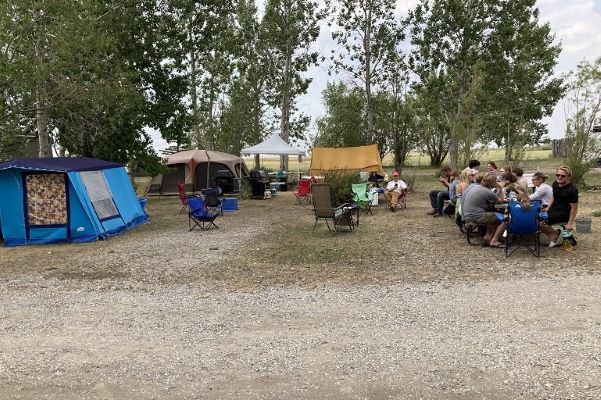

During the four-week excavation component of the field school, the students and directors live at the campground (basecamp) just south of Head-Smashed-In Buffalo Jump. Students must bring their own tent, sleeping bag, air mattress/cot, towels, and other personal items (shampoo, soap, etc.). There are washrooms, showers, and laundry facilities at basecamp. A camp kitchen and other facilities will be constructed upon arrival. Lights and electricity are available at the campsite but electricity must be used sparingly. There is limited internet but good cell phone reception at basecamp. Students and staff will take turns cleaning, cooking, and caring for basecamp.
diet


The field school team prepares well-balanced, nutritious meals. Since these are group meals, individual dietary needs will be accommodated as best as possible, although it is not possible to be fully gluten free, kosher, etc. There will be a number of meat or dairy, vegetable, and starch (rice, potatoes, bread, etc.) choices. Breakfasts and dinners are prepared and eaten at basecamp. Individual lunches are packed in the morning and are taken to the site along with water containers.
travel information
We suggest you hold purchasing airline tickets until six (6) weeks before the program begins. Natural disasters, political changes, weather conditions & a range of other factors may require the cancelation this field school. CFS typically makes a final Go/No Go decision about six weeks before the field school begins. To protect students from potential financial loss, we urge students to purchase airline tickets only six weeks prior to program beginning.
Head-Smashed-In is in Alberta, Canada, about 18 km north and west from Fort Macleod. The closest international airport is Calgary, Alberta (YYC), which is about a two-hour drive from basecamp. Red Arrow provides a bus service between the Calgary Airport to Fort Macleod (it is a stop on the line between Calgary and Lethbridge). On May 19, students should take the 5:15 pm Red Arrow bus from Calgary Airport and arrive at Fort Macleod at 8:00 pm. The instructors will meet students at the bus station at Fort Macleod (Shell Gas Station) and transport them to the field camp. On June 23 – the last day of the field school – students will depart on the Red Arrow bus from Fort Macleod at 9:15 am, arriving at Calgary airport at 12:10 pm.
visa information


US citizens do not need a visa to enter Canada for stays under 180 days. Citizens of other countries are asked to check the Canadian Embassy website page at their home country for specific visa requirements.
Meeting Point
| Date | Time | Location |
|---|---|---|
| May 17, 2024 | 8:00pm | Circle K Shell Gas Station at Fort Macleod |
Safety
Our primary concern is with education. Traveling and conducting field work involves risk. Students interested in participating in our programs must weigh whether the potential risk is worth the value of education provided. While risk is inherent in everything we do, we do not take risk lightly. We engage in intensive review of each field school location prior to approval. Once a program is accepted, we review and monitor each program annually to make sure it complies with all our standards and policies, including student safety.
Students attending our international programs are covered by a comprehensive Health Insurance policy that includes physical illness or injury, mental or chronic conditions. There are no deductible and 100% of costs are covered up to $250,000. In addition, we provide Political & Natural Disaster Evacuation policy, which allow us to remove students from program location if conditions change.
Students attending our domestic programs (within the US) must have their own health insurance and provide proof upon enrollment. Program directors are familiar with local authorities and if in need of evacuation, local emergency services and/or law enforcement will be notified and activated.
We have an explicit and robust harassments & discriminations policies. If students feel they cannot discuss personal safety issues with program staff, they are welcome to call the CFS emergency hotline and talk directly with CFS staff members.
Call (+1 562 584-0761) or email (info@fieldsciences.org) if you have questions about the safety of any program.


